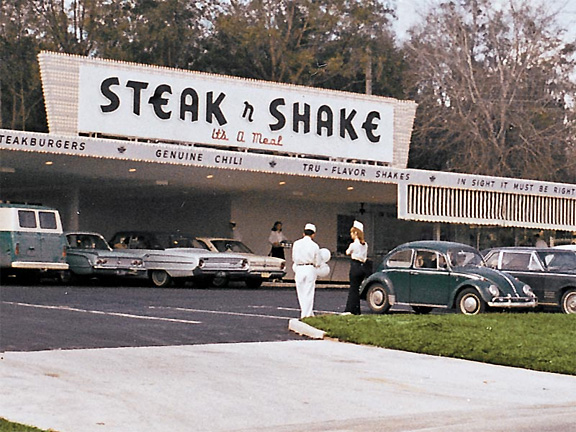
How about the cost of the Death Star?
http://i.gizmodo.com/5146010/death-star-costs-156-septillion-14-trillion-times-the-us-debt
Musings on life and "a faith and knowledge resting on the hope of eternal life." By an Anglican minister on the furthermost western corner in northern England, where it's true that no man is an island.
 e up. Why should I go out and kill someone I never knew?". Yet his statement, and the meeting he had with Kuentz shows that really the change in the world comes as the human heart is transformed. In Harry Patch's case, he lost his childhood faith in the trenches. Death was a topic never mentioned in the trenches. Yet Harry Patch first cried over his wartime experiences after he was a hundred years old, never having spoken of them before then, and the same was true for Charles Kuentz, the last surviving German veteran of WW1. Patch and Kuentz met for the first time when they were 107, at a cemetery where 44,000 German soldiers were buried. Mr. Patch laid a wreath and gave a gift of an acorn from the ground to Herr Kuentz, saying "Now we are friends." Imagine carrying the sadness, bitterness and fear in your heart for so long (perhaps you can imagine it). But a considerable amount of freedom came to Harry Patch in the last years of his life, because 100 wasn't too late for him.
e up. Why should I go out and kill someone I never knew?". Yet his statement, and the meeting he had with Kuentz shows that really the change in the world comes as the human heart is transformed. In Harry Patch's case, he lost his childhood faith in the trenches. Death was a topic never mentioned in the trenches. Yet Harry Patch first cried over his wartime experiences after he was a hundred years old, never having spoken of them before then, and the same was true for Charles Kuentz, the last surviving German veteran of WW1. Patch and Kuentz met for the first time when they were 107, at a cemetery where 44,000 German soldiers were buried. Mr. Patch laid a wreath and gave a gift of an acorn from the ground to Herr Kuentz, saying "Now we are friends." Imagine carrying the sadness, bitterness and fear in your heart for so long (perhaps you can imagine it). But a considerable amount of freedom came to Harry Patch in the last years of his life, because 100 wasn't too late for him. Here, at dawn, on 16 August 1917, the 7th Battalion, Duke of Cornwall's Light Infantry, 20th (Light) Division crossed the Steenbeek prior to their successful assault on the village of Langemarck.
This stone is erected to the memory of fallen comrades, and to honour the courage, sacrifice and passing of the Great War generation. It is the gift of former Private and Lewis Gunner Harry Patch, No. 29295, C Company, 7th DCLI, the last surviving veteran to have served in the trenches of the Western Front.
September 2008
Other Democrats talk tough in a secular way, but Obama’s speeches were thoroughly theological. He talked about the “core struggle of human nature” between love and evil.My own read on the speech Brooks describes is that Obama is on the way to thinking as Brooks describes, but is not there yet. The core struggle of human nature that the President described when accepting the Nobel Prize is between different people, while wisdom sees this within the individual human heart. The view that if we only knew better, our problems would be solved is best shown, I think, in this video from Scrubs.

In what, then, are justification and sanctification alike?
(a) Both proceed originally from the free grace of God. It is of His gift alone that believers are justified or sanctified at all.
(b) Both are part of that great work of salvation which Christ, in the eternal covenant, has undertaken on behalf of His people. Christ is the fountain of life, from which pardon and holiness both flow. The root of each is Christ.
(c) Both are to be found in the same persons. Those who are justified are always sanctified, and those who are sanctified are always justified. God has joined them together, and they cannot be put asunder.
(d) Both begin at the same time. The moment a person begins to be a justified person; he also begins to be a sanctified person. He may not feel it, but it is a fact.
(e) Both are alike necessary to salvation. No one ever reached heaven without a renewed heart as well as forgiveness, without the Spirit's grace as well as the blood of Christ, without a meetness for eternal glory as well as a title. The one is just as necessary as the other.
Such are the points on which justification and sanctification agree. Let us now reverse the picture, and see wherein they differ.
(a) Justification is the reckoning and counting a man to be righteous for the sake of another, even Jesus Christ the Lord. Sanctification is the actual making a man inwardly righteous, though it may be in a very feeble degree.I commend these distinctions to the attention of all my readers, and I ask them to ponder them well. I am persuaded that one great cause of the darkness and uncomfortable feelings of many well-meaning people in the matter of religion is their habit of confounding, and not distinguishing, justification and sanctification. It can never be too strongly impressed on our minds that they are two separate things. No doubt they cannot be divided, and everyone that is a partaker of either is a partaker of both.
(b) The righteousness we have by our justification is not our own, but the everlasting perfect righteousness of our great Mediator Christ, imputed to us, and made our own by faith. The righteousness we have by sanctification is our own righteousness, imparted, inherent, and wrought in us by the Holy Spirit, but mingled with much infirmity and imperfection.
(c) In justification our own works have no place at all, and simple faith in Christ is the one thing needful.
(d) In sanctification our own works are of vast importance and God bids us fight, and watch, and pray, and strive, and take pains, and labour Justification is a finished and complete work, and a man is perfectly justified the moment he believes. Sanctification is an imperfect work, comparatively, and will never be perfected until we reach heaven.
(e) Justification admits of no growth or increase: a man is as much justified the hour he first comes to Christ by faith as he will be to all eternity. Sanctification is eminently a progressive work, and admits of continual growth and enlargement so long as a man lives.
(f) Justification has special reference to our persons, our standing in God's sight, and our deliverance from guilt. Sanctification has special reference to our natures, and the moral renewal of our hearts.
(g) Justification gives us our title to heaven, and boldness to enter in. Sanctification gives us our meetness for heaven, and prepares us to enjoy it when we dwell there.
(h) Justification is the act of God about us, and is not easily discerned by others. Sanctification is the work of God within us, and cannot be hid in its outward manifestation from the eyes of men.




Being on YouTube, having a blog, having an iPod, being on MySpace-- all of these things are self-validating, they allow that illusion that is so important to narcissists: that we are the main characters in a movie. Not that we're the best, or the good guys, but the main characters. That everyone around us is supporting cast; the funny friend, the crazy ex, the neurotic mother, the egotistical date, etc. That makes reminders of our insignificance even more infuriating.
I'm not saying each of us as individuals is insignificant. We should, could, matter. But to protect ourselves from an existential implosion, we decide to define ourselves through images and signs, rather than behaviors; lacking an identity founded in anything real makes us vulnerable to anger, resentment. But no guilt, ever. The narcissist never feels guilt. He feels shame.
 (Pictured, Cave of St. John, Patmos)
(Pictured, Cave of St. John, Patmos)

The aim of the awards is to honour achievements that "first make people laugh and then make them think"...
The full list of winners:
Veterinary medicine: Catherine Douglas and Peter Rowlinson of Newcastle University, UK, for showing that cows with names give more milk than cows that are nameless.
Peace: Stephan Bolliger, Steffen Ross, Lars Oesterhelweg, Michael Thali and Beat Kneubuehl of the University of Bern, Switzerland, for determining whether it is better to be smashed over the head with a full bottle of beer or with an empty bottle.
Biology: Fumiaki Taguchi, Song Guofu and Zhang Guanglei of Kitasato University Graduate School of Medical Sciences in Sagamihara, Japan, for demonstrating that kitchen refuse can be reduced more than 90% in mass by using bacteria extracted from the faeces of giant pandas.
Medicine: Donald L Unger of Thousand Oaks, California, US, for investigating a possible cause of arthritis of the fingers, by diligently cracking the knuckles of his left hand but not his right hand every day for more than 60 years.
Economics: The directors, executives, and auditors of four Icelandic banks for demonstrating that tiny banks can be rapidly transformed into huge banks, and vice versa (and for demonstrating that similar things can be done to an entire national economy).
Physics: Katherine K Whitcome of the University of Cincinnati, Daniel E Lieberman of Harvard University and Liza J. Shapiro of the University of Texas, all in the US, for analytically determining why pregnant women do not tip over.
Chemistry: Javier Morales, Miguel Apatiga and Victor M Castano of Universidad Nacional Autonoma in Mexico, for creating diamonds from tequila.
Literature: Ireland's police service for writing and presenting more than 50 traffic tickets to the most frequent driving offender in the country - Prawo Jazdy - whose name in Polish means "Driving Licence".
Public Health: Elena N Bodnar, Raphael C Lee, and Sandra Marijan of Chicago, US, for inventing a bra that can be quickly converted into a pair of gas masks - one for the wearer and one to be given to a needy bystander.
Mathematics: Gideon Gono, governor of Zimbabwe's Reserve Bank, for giving people a simple, everyday way to cope with a wide range of numbers by having his bank print notes with denominations ranging from one cent to one hundred trillion dollars.




 As I strolled along seeing all of these hydrangea, my thoughts ran from the horticultural to the biblical.
As I strolled along seeing all of these hydrangea, my thoughts ran from the horticultural to the biblical. The Bible's way to say this is good soil produces fruitful, good, useful and beautiful things. That's a frequent use of the image of soil in the Bible, but soil can, interestingly, also be used as an image of judgment, as God is said to destroy (by mixing with sulfur) or remove (the topsoil down to bare rock) the soil of people he is judging -- a harrowing image in an agrarian setting (Isaiah 24, Ezekial 26).
The Bible's way to say this is good soil produces fruitful, good, useful and beautiful things. That's a frequent use of the image of soil in the Bible, but soil can, interestingly, also be used as an image of judgment, as God is said to destroy (by mixing with sulfur) or remove (the topsoil down to bare rock) the soil of people he is judging -- a harrowing image in an agrarian setting (Isaiah 24, Ezekial 26).




 If you are reading this blog post, perhaps you were attracted by the title, "The Wave Motion Gun"? If so, this places you firmly as a child of the 80's, or at least aware of one of the forgotten but great cartoons, Star Blazers.
If you are reading this blog post, perhaps you were attracted by the title, "The Wave Motion Gun"? If so, this places you firmly as a child of the 80's, or at least aware of one of the forgotten but great cartoons, Star Blazers.
 ul sidekick, spunky woman and a dastardly villain to round out the main cast. For some reason, their uniforms had arrows pointing to their stomachs, akin to t-shirts that might say "baby inside".
ul sidekick, spunky woman and a dastardly villain to round out the main cast. For some reason, their uniforms had arrows pointing to their stomachs, akin to t-shirts that might say "baby inside".























| Blog: |
| ChristChurchCurate |
Topics: |